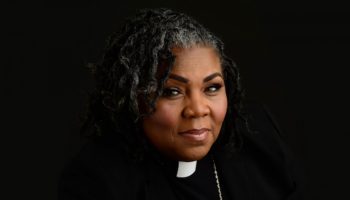Welcome to The African American Heritage Corner. Chautauqua Institution has been described as an American utopia. In Jeffrey Simpson’s 1999 book, Chautauqua: An American Utopia, he writes “Chautauqua could be the perfect small town. It reflected that wonderful American curiosity. It is contained in this picture-perfect place.” Despite this idyllic description, for the majority of its almost 150-year existence, the Institution has had no consistent community of Black visitors. However, African Americans have impacted the very fabric of the Chautauqua experience — from arriving on the grounds as performers, musicians, scholars and religious speakers, to providing vital services through labor as drivers, housekeepers and nannies, to the benefit of the overwhelmingly white community. The names of African American luminaries, such as Booker T. Washington, Marian Anderson and Thurgood Marshall, as well as more recent leaders, including Wes Moore and Imani Perry, loom large.
The African American Heritage House was founded 10 years ago for the purpose of making the grounds resemble the diversity of our world while centering African American voices and experiences. Originally founded as the African American Denominational House, it would take on several different forms until becoming AAHH. Currently, we host a weekly speaker series throughout the summer that explores how the weekly theme intersects with the experiences of People of Color. Additionally, we engage the community through candid Porch Chats, where thinking is challenged and vulnerability is cherished. The AAHH is dedicated to enriching the Chautauqua community through the inclusion of African American history and culture, and the contributions of African American intellectuals. In support of AAHH’s mission, every Wednesday this column will explore different elements of Black history at Chautauqua, drawing on resources from the Institution’s archives — often notices buried in the Daily, or ads, or the minutiae of lines in building reports. This history is complex, multifaceted and, at some points, painful. The Civil War and the ensuing Reconstruction caused the colliding of tectonic plates, ultimately creating new boundaries and fault lines. In this moment of transformation, Chautauqua was established, only 11 years after the Emancipation Proclamation. Originally formed as a Methodist summer school, it quickly transformed into an intellectual and cultural hub. African Americans have been vital to the growth of Chautauqua since its beginning. Since the start, the grounds have been open to African Americans; however, de facto segregation was rampant. Importantly, throughout various moments in history, the Institution reflected the racism and prejudice of the time. For example, in the 1930s and ’40s, visitors enjoyed minstrel shows which included blackface and the popular racist caricatures of Amos & Andy. During this time, the all-Black boarding house named the Phillis Wheatley Cottage was built and in use, though there is no evidence that Wheatley ever spoke at or attended a summer season. Though there was no official administrative policy on segregation, the cultural and societal environment was not conducive to racial equity. Currently, the AAHH House, at 40 Scott, has historical storyboards, written and developed by Emálee Sanfilippo, which tell the story of the African American experience during the first 25 years of the Institution. This period was marked by racial inclusion, though paternalistic, which would change at the turn of the century.
As a 15-year-old Black girl, I visited the Institution for the first time in 2013. I was excited by the vibrant intellectual community and plethora of mental stimulation. I attended the Chautauqua Opera, talks in the Amphitheater, and an Interfaith Lecture. I vividly remember visiting the Wes Moore lecture in the Amp and feeling inspired by his vulnerability and passion. Five years later, I would become a Rhodes Scholar, joining Mr. Moore in the honor. I firmly believe in the power of stories, history and vulnerability to transform our world. I welcome you to join me.
— Camille “Mimi” Borders
African American Heritage House Program Director




